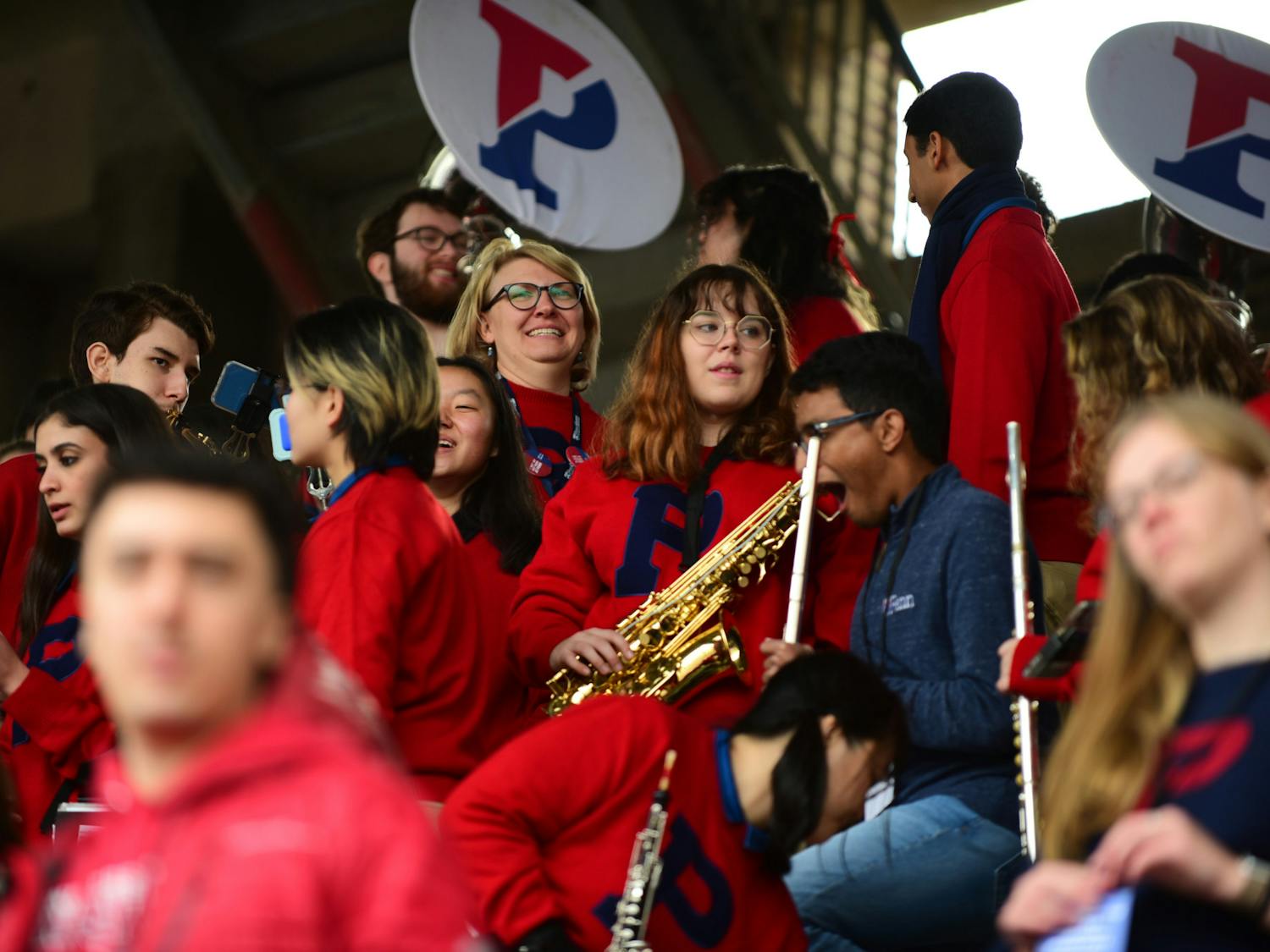As a smiley, wide-eyed incoming first year, I spent time in the weeks before NSO crafting a perfect schedule of first-year friendly courses consisting of general requirements that stippled my interest. Having attended an Armenian day school in Los Angeles from pre-school to 12th grade, I excitedly looked into the broad selection of languages offered by the University, eager to sign up for an Armenian language course.
Yet, I was disappointed to see that the Armenian language, one of the oldest in the world, was not offered. As someone who was also considering attending UCLA, UC Berkeley, or USC before committing to Penn, I looked back for a moment at each of those university’s premier Armenian Studies departments. Moreso, it was disappointing to digest this information knowing that fellow Ivy League institutions like Columbia and Harvard offer Armenian language and history courses, while Penn does not, despite its proud Armenian Students Association and the vibrant history of Armenians in the city of Philadelphia.
Even the Near Eastern Languages and Civilizations department lacks Armenian representation, despite Armenians having inhabited the Caucasus region with a recorded history past 3,500 years, much longer than some of the other countries represented in the NELC department. But instead of complaining to no end, I decided to embody the trailblazing spirit of my Armenian-American ancestors and advocate for the change I wanted to see.
When I first visited Penn’s campus, among the overwhelming amount of information thrown at me, one stuck out to me: the ability to petition for a new language at Penn. The possibility lingered in my mind throughout the tour, on my flight back to California, and until I met my pre-major advisor for the first time.
When I met with her to create my first-year fall schedule, she advised me to reach out to the language department directly and explain my interest in bringing Armenian language courses to Penn. I reached out to the Penn Language Center and did exactly that, providing a background of my Armenian education and asking for the necessary steps to get the petition process going; my eager, naive self believed I could get the class in place before I moved into the Quad.
Of course, the journey would not be that simple, and in my first response from the Language Center, I was asked for a copy of my high school transcript that proved I took Armenian for at least four years. I sent them the transcript they asked for and received confirmation that my language requirement had been waived.
Though this response was an initial wave of relief, it wasn’t exactly the answer I was looking for. At this point there was a lot of back and forth between the Language Center and myself. The Center’s slow response time and regular lack of replies hinted at a seemingly underlying disinterest in the idea of bringing Armenian courses, which led to a lot of frustration on my end. I began the process of sending passionate emails in the summer before my first year and didn't get any concrete responses for my entire first year in Philadelphia. I knew I had to take a step further to prove that the Armenian language had a place at Penn.
I did a lot of research on the history of Armenians at Penn, and learned that the language was actually once taught in the College. Moreover, multiple Armenian conferences and summer academies were held at the University. In the process of my research on the topic, I even learned that one of Jon Huntsman's grandest philanthropic efforts was aiding the Armenian people and government after the devastating earthquake in Spitak of 1988. I included this information in one more email to the Language Center towards the end of my second semester and was finally given the necessary requirements to put my plan into action.
See more from Sose Hovannisian:
Armenians are facing a second genocide – you should care
Greasy Fingers, Greasier Poles: Watch the Super Bowl this Sunday
The helpful staff at the Language Center told me I needed a minimum of six signatures from other students who expressed an interest in an Armenian language course and would take it if offered so that funding could be requested from the School of Arts and Sciences Dean’s office. I quickly reached out to the Penn Armenian Students Association and was not surprised to see how many students were interested in taking the course if offered. With my list of ten names of hopeful students of Armenian origin, I reached out to the Language Center once more. But this time, I had news for them that changed the entire trajectory of this process: In the same group of ten students who responded to me about interest in taking the course was a grad student interested in teaching it. George Balabanian, a Canadian-Armenian working towards his Ph.D. in linguistics at Penn, is a specialist in the language.
Last month, the rest of the Armenian students at Penn and I were elated to hear from Mr. Balabanian himself that the course was underway and would be offered this coming spring.
The current syllabus describes the course as one designed to provide students with a foundational understanding of the Western Armenian language. Its tentative schedule includes weeks spent on topics like the historical and linguistic context of the language, different lessons in grammar, family life, and traditions such as food, holidays, and celebrations, and a look into the Armenian diasporan communities of today and all the problems they face.
You can imagine the excitement and joy felt by all the Armenians at Penn, especially at such a devastating time in our people’s history. Finally, the Armenian people will be gaining more recognition from the University, especially after the administration did not send any messages regarding the second Armenian genocide that is currently ongoing in the autonomous Armenian region of Artsakh. The addition of an Armenian language course puts Penn at par with its elite university counterparts in California, the Midwest, and of course, the Ivy League. But more importantly, it puts Penn ahead of its counterparts, because this experience proves that Penn is a University for its students, willing to hear and grant requests of students who want to implement change.
Penn, a world-renowned prestigious institution, has allowed me, a young Armenian student from Los Angeles, California, to establish an Armenian course in its catalog. Doing so has put a smile on the faces of Armenians from all over. The establishment of "LANG 0100: Elementary I: Armenian I" may just be the start of a new chapter in Armenian history and success at Penn. This course, so generously implemented by the Language Center, will continue to draw Armenian applicants to the University and further establish itself as a school that Armenian students all over the world want to call home. If we continue on this right track, Penn too may soon be able to boast a sparkling Armenian Studies department and celebrate the richness and dynamic of Armenian history and culture.
That Penn willingly and happily established a course for my native language is just one instance that has made me proud to be a Penn Quaker and should be one that inspires you to do the same. If Penn opened its ears to my mother tongue, it’ll listen to yours, too.
SOSE HOVANNISIAN is a College sophomore majoring in sociology and minoring in history and consumer psychology from Los Angeles, California. Her email is sosehova@sas.upenn.edu.









